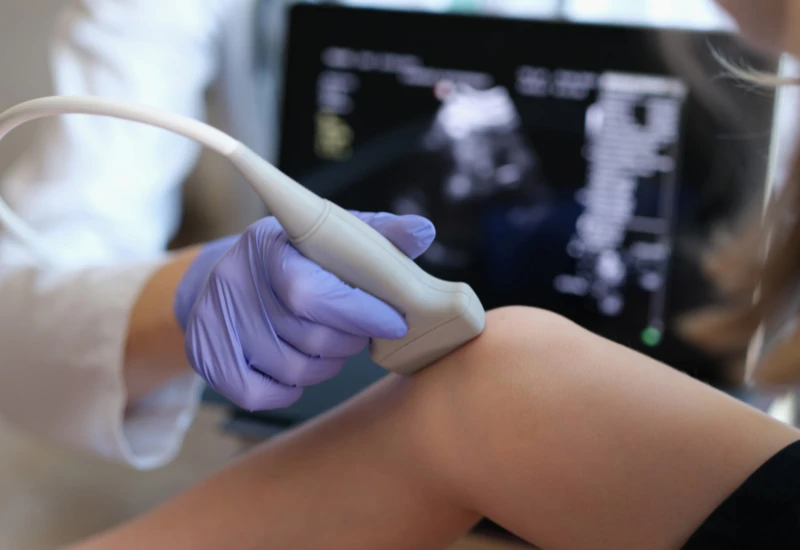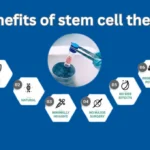Juvenile Arthritis Treatment by Stem Cell at IRM Hospital
Juvenile Arthritis (JA), a term encompassing various types of arthritis affecting children under 16, poses significant challenges in pediatric healthcare. Characterized by persistent joint inflammation, pain, and stiffness, JA can profoundly impact a child’s quality of life. However, the advent of stem cell therapy offers a beacon of hope, and IRM Hospital in Islamabad stands at the forefront of this revolutionary treatment.
Juvenile Arthritis is an autoimmune disorder where the immune system mistakenly attacks the body’s tissues, causing inflammation in joints and potentially other areas of the body. Conventional treatments have focused on managing symptoms and slowing disease progression through medication, physical therapy, and, in severe cases, surgery. Yet, these approaches often come with limitations and side effects.


Diagnosing Juvenile Arthritis
The process of diagnosing juvenile arthritis involves a combination of clinical evaluations, laboratory tests, and imaging studies to rule out other conditions. At IRM Hospital, specialists employ a multidisciplinary approach, utilizing advanced diagnostic tools to ensure an accurate diagnosis.

Research and Development
IRM Hospital is at the forefront of research in pediatric rheumatology, participating in clinical trials and studies aimed at discovering new treatment modalities and improving existing ones. This commitment to innovation ensures that patients have access to the latest and most effective treatments.

Collaborative Care Approach
The pediatric rheumatology team at IRM Hospital adopts a collaborative approach, working closely with families, primary care providers, and other specialists. This ensures a holistic treatment plan that addresses all aspects of the child’s health and well-being.
Stem Cell
Therapy - A Superior Solution
Enter stem cell therapy – a cutting-edge regenerative medicine approach that has shown potential in treating autoimmune conditions like JA. Stem cells have the unique ability to differentiate into various cell types, offering the possibility to repair damaged tissues and modulate the immune system, providing a more natural form of healing.
Precision & Advancement in Modern Treatments
The treatment of juvenile arthritis
at IRM Hospital focuses on controlling pain, reducing inflammation, improving function, and preventing joint damage.
Stem Cell Therapy for Juvenile Arthritis at IRM Hospital
IRM Hospital, a leading medical institution in Islamabad, has embraced stem cell therapy as part of its pediatric rheumatology care. The hospital’s specialized program focuses on using mesenchymal stem cells (MSCs), known for their anti-inflammatory and immunomodulatory properties, to treat juvenile arthritis.
The process begins with a comprehensive evaluation of the patient to determine the suitability for stem cell therapy. Once approved, stem cells are either harvested from the patient’s own body (autologous) or from a matched donor (allogeneic). These cells are then processed and injected back into the patient, targeting inflamed joints and tissues.
The Benefits and Outcomes
Patients treated with stem cell therapy at IRM Hospital have shown promising outcomes. Many report reduced joint pain and swelling, increased mobility, and, in some cases, remission of the disease. Unlike conventional treatments, stem cell therapy aims to address the root cause of inflammation, offering a long-term solution rather than merely symptom management.
Moreover, stem cell therapy’s minimally invasive nature and reduced risk of side effects make it an attractive option for young patients and their families seeking alternatives to traditional treatments.
Causes and Risk Factors
The exact cause remains unknown, but genetic factors and environmental triggers are thought to play a role.
Types of Juvenile Arthritis
Oligoarticular This type affects fewer than five joints and is the most common form.
Polyarticular Affecting five or more joints, it can be more severe and resemble adult rheumatoid arthritis.
Systemic It involves the entire body, causing fevers and rashes alongside joint symptoms.
Symptoms of Juvenile Arthritis
Common Symptoms Symptoms vary but often include joint pain, swelling, and morning stiffness.
When to Seek Medical Attention Early diagnosis and treatment are crucial for managing symptoms and preventing joint damage.
Diagnosis of Juvenile Arthritis
Medical History and Physical Examination Doctors start with a thorough medical history and physical examination.
Laboratory Tests and Imaging Blood tests and imaging like X-rays or MRIs help confirm the diagnosis.
Pharmacological Interventions
1. Nonsteroidal Anti-Inflammatory Drugs (NSAIDs):
These medications are often the first line of treatment for relieving pain and reducing inflammation in JA patients. They can help improve mobility and comfort, allowing children to participate more fully in daily activities and physical therapy.
2. Disease-Modifying Antirheumatic Drugs (DMARDs):
DMARDs, such as methotrexate, are used to slow the progression of JA and protect the joints from further damage. These drugs can be effective in controlling the immune system’s abnormal response that causes JA.
3. Biologic Agents:
Biologic response modifiers target specific pathways in the immune system that are involved in the inflammation process. Drugs like etanercept (Enbrel) and adalimumab (Humira) have shown effectiveness in treating children who do not respond to traditional DMARDs.
Physical and Occupational Therapy
1. Physical Therapy:
Tailored exercise programs can help maintain joint flexibility and muscle strength, crucial for preserving mobility and preventing contractures. Physical therapists at IRM Hospital work closely with children to ensure exercises are both effective and engaging.
2. Occupational Therapy:
Occupational therapists assist in developing strategies to perform daily activities with minimal discomfort. They may recommend adaptive devices to help with tasks such as dressing, writing, and other fine motor activities.
Nutritional Counseling and Lifestyle Modifications
A balanced diet rich in nutrients can support overall health and possibly reduce inflammation. IRM Hospital’s nutritional counselors work with families to create diet plans that meet the child’s needs and preferences, potentially including omega-3 fatty acids, antioxidants, and other anti-inflammatory foods.
Lifestyle modifications, including regular physical activity and weight management, are encouraged to support joint health and reduce stress on the body. The hospital also provides education on the importance of adequate rest and stress management techniques suitable for children.
uvenile arthritis presents unique challenges, but with the advanced treatment options and dedicated care team at IRM Hospital, many children and their families find hope and relief. Through a combination of cutting-edge therapy, comprehensive support services, and an unwavering commitment to research, IRM Hospital stands as a beacon of care for young patients battling this condition.
The journey of managing juvenile arthritis is a collaborative one, involving patients, families, and a team of dedicated professionals at IRM Hospital. Together, they navigate the challenges, celebrate the victories, and work tirelessly towards a future where every child with arthritis can lead a healthy, active life. It will surely enhance the quality of life and social development with healthier nation.
Success Stories and Testimonials
Hear from families whose lives have been transformed by the care at IRM Hospital.
Navigating Insurance and Financial Aspects
IRM Hospital assists families in understanding and navigating the financial aspects of treatment.
Preparing for a Doctor’s Visit
Tips for making the most of your appointments at IRM Hospital.
Future Prospects in Juvenile Arthritis Treatment
Exploring the potential future advancements in treating this condition.
The introduction of stem cell therapy for juvenile arthritis at IRM Hospital in Islamabad marks a significant advancement in pediatric rheumatology. Offering a novel approach that targets disease mechanisms at their core, stem cell therapy paves the way for more effective, sustainable, and less invasive treatment options. As research progresses, IRM Hospital continues to lead by example, demonstrating the potential of regenerative medicine to transform lives and offer new hope to young patients battling chronic conditions.






